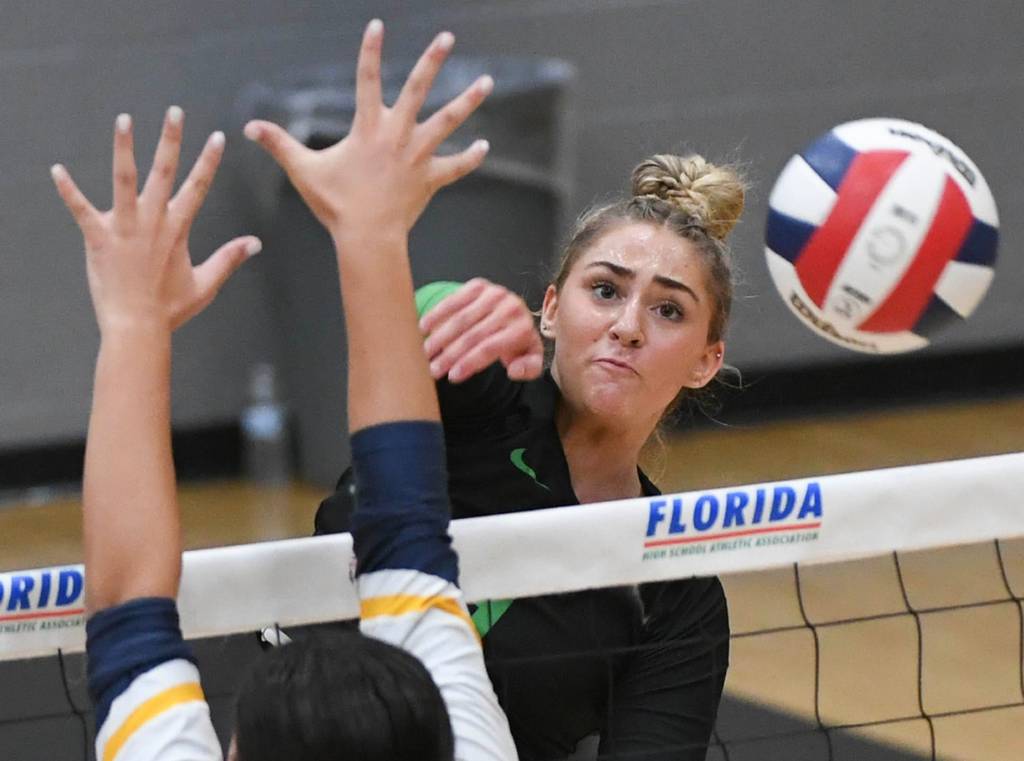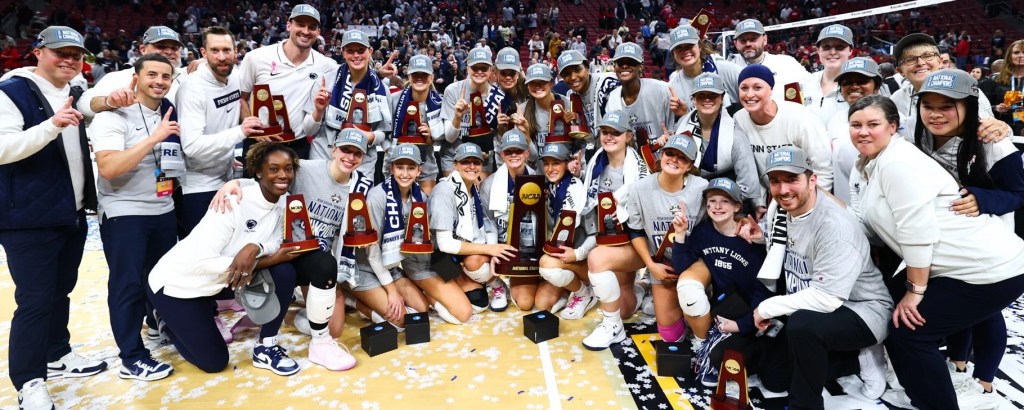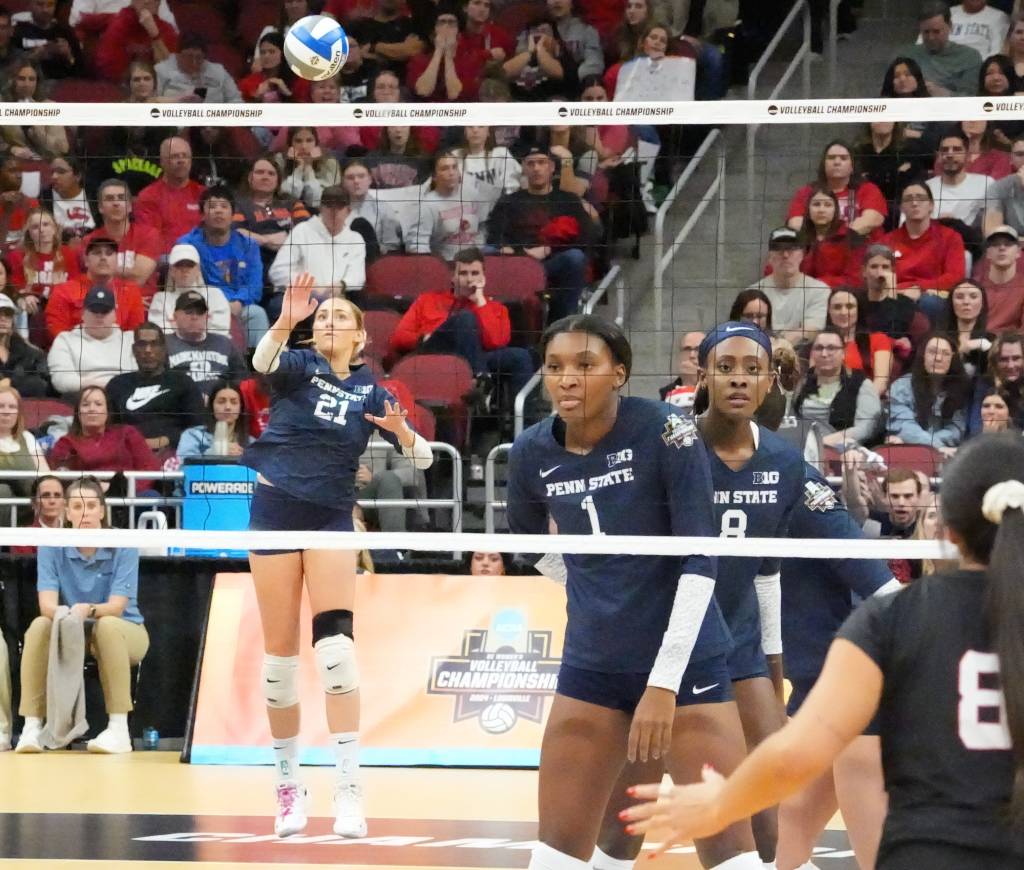Izzy Starck and The Importance of Mental Health for Young Athletes
Anwar Stetson

Who is Izzy Starck?
Volleyball star Izzy Starck had seemingly done it all by the time she finished her freshman year of college at Penn State. The Colorado native was an All-State setter and champion at Rampart High School in Colorado Springs. Moving to Florida her senior year, she won the state’s Gatorade Player of the Year award at Viera High School.
The no. 1 ranked recruit in the Class of 2024, she committed to a dominant Penn State program where she won the NCAA National Championship as a freshman. She also won AVCA National Freshman of the Year and other accolades.
Second in the nation in assists/set for freshmen, Starck was expected to be even better her sophomore year as Penn State continued to dominate. However, at the beginning of September, Starck announced that she is stepping away from volleyball for the remainder of the season to prioritize her mental health.
An Unprecedented Statement
On social media, she posted a statement:
“After much reflection, I have made the difficult decision to step away from volleyball for this season in order to prioritize my mental health. This has not been an easy choice, but it is one that I believe is necessary for my overall well-being. Over the past several months, I’ve been facing challenges that have taken a toll on me mentally and emotionally. I recognize that I need to take a step back and focus on getting the help and care I need at this time. This is not goodbye forever, it’s simply a pause to focus on healing and growth. I appreciate your understanding, respect, and continued support as I take this important step forward. I would greatly appreciate if everyone respects me and my family’s privacy. Thank you.”
A top Division 1 athlete taking a year off from her sport for mental health reasons is an unprecedented move. But could it become more common? Teens and young adults are talking more openly about their mental health, but they’re also dealing with increased mental health struggles that can often be debilitating.

The Test Tube Athlete
Last month, we detailed the impact of less in-person free play on Gen Z and Gen Alpha’s development. But even the most well developed young athletes in today’s world can be impacted by the rigors of high-level athletics.
Though Starck hasn’t spoken specifically about the reason for her mental health break, many athletes often crack under the mental pressure of being a high-performing athlete.
One of the most high-profile examples of mental stress is former NFL quarterback Todd Marinovich.
In the early 1960’s, Marv Marinovich was an offensive lineman for the USC Trojans, contributing to a national championship. He went pro briefly, but retired after just three seasons due to overtraining. Determined to learn more about exercise science, Marinovich became a revolutionary strength and conditioning coach. When his son, Todd, was born, Sports Illustrated designated him the first “test tube athlete”.
Marv trained Todd to be a sports star before he could walk. Todd grew up in a controlled environment dedicated to his success. He ate a curated diet (Sports Illustrated mentioned that he had never eaten a Big Mac though Marinovich recently called out parts of the article as hyperbolic). Todd learned football from his father’s assembled team of advisors, reportedly stayed completely alcohol, drug, and tobacco free, and began strength, balance, and exercise training as an infant.

Performance Anxiety
Marinovich became one of the most hyped prospects in the country, eventually starting at USC himself in the late 1980s. Unfortunately, Todd Marinovich became a symbol of how it can all come crumbling down. Burdened by his father’s high expectations, media hype, and the overall pressure of being a major athlete, Marinovich developed a drug addiction that would plague his life for decades. As a freshman at USC he told his mother, “I wish I could go somewhere else and be someone else. I don’t want to be Todd Marinovich.”
After flaming out of the NFL, outlets began ranking him one of the biggest busts of all time. Documentaries detailed his downfall like a Greek tragedy. But as the youth sports industry explodes, it feels like the pressure modern athletes face can feel much like the circumstances deemed extreme in Marinovich’s time.
Now that youth sports are a $40 billion dollar industry, parents and coaches have opportunities to give more children the training that coaches like Marv Marinovich pioneered in the 1960s and 70s. Parents invest thousands of dollars to ensure that their kid gets a step ahead of the ever-growing competition.
It feels like there are so many more Marv Marinovich-type dads. Psychologists have noted the stress caused by overbearing sports parents. The pressure can be intense, and children can develop performance anxiety by trying to meet expectations from coaches, parents, schools, and social media.

Putting the Team on Your Back
Furthermore, kids are specializing in particular sports at a young age. As we detailed earlier this year, sports specialization can lead to overuse injury. A 2019 study also found that sports specialization can lead to burnout.
Kids are also earning NIL money as young as age 14. Some kids could feel pressure at a young age to provide for themselves and their families financially.
None of this is to say that sports, or winning, are bad. In the same study, the National Library of Medicine found that sports actually help protect the overall health of young athletes. The mental health of youth athletes needs more research to come to definitive conclusions. But most kids still play sports for one main reason: they’re fun!
Americans in general are increasingly more open to talking about mental health. It’s important to make sure young athletes are at their best both on and off the court, but mental health issues can happen to anyone. And it’s important for society to take an understanding approach.
There’s no “I” in Team
Penn State, in a statement to ESPN, said “We fully support Izzy in taking this important and difficult step, and kindly ask that her privacy be respected during this time.” Losing a top player early in the season is very difficult for Penn State. But a large institution publicly supporting a player going through a mental health struggle is an important step in helping young athletes.
A player can be in great shape, strong, and healthy and still get hit with a physical injury. Mental health often works the same way. A young man or woman can do everything right and still have to deal with a mental health issue. While it’s important to mitigate mental health issues, it’s just as important to understand that mental health issues are a part of life.
Regardless, Penn State and the volleyball world are wishing Izzy Starck the best as she goes on her own journey.